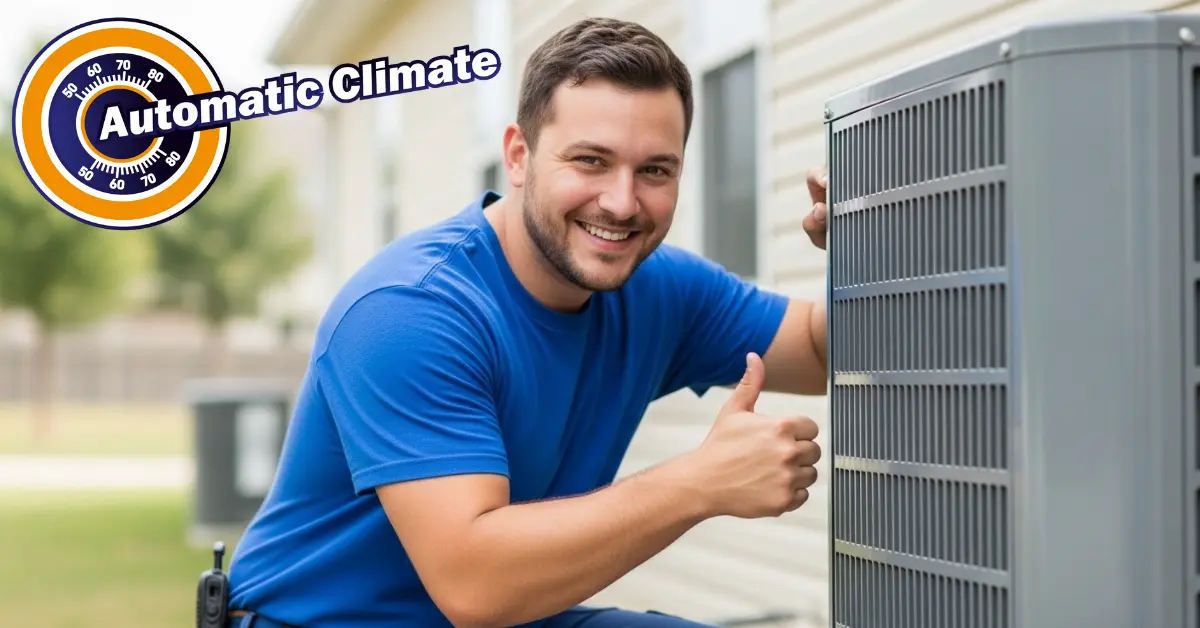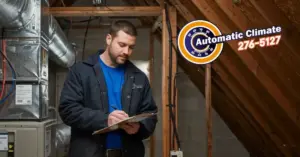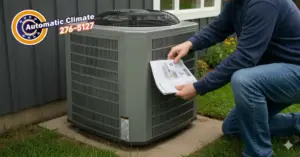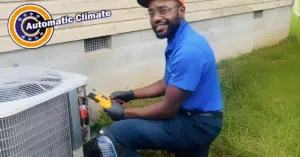💧 Facing an AC Water Leak? Your Step-by-Step Guide to a Dry and Cool Home
Imagine it’s a scorching summer day, and you’re blissfully enjoying the cool air in your living room, only for that peace to be shattered by the sound of dripping water. There it is, your air conditioning unit—a lifesaver in the heat—has turned into a miniature waterfall. Dealing with an AC water leak is a stressful and all-too-common problem for homeowners. The day my AC decided to flood my living room was filled with unexpected twists, but it taught me valuable lessons about tackling this specific issue. In this comprehensive guide, we’ll explore how to identify the source of an AC water leak, what immediate steps to take when disaster strikes, and the best long-term solutions to prevent a future crisis.
Identifying the Source of the AC Water Leak
Common Causes of an AC Water Leak
Understanding the common culprits behind an AC water leak can empower you to react swiftly. Typically, the issues can stem from a few key areas. When your AC functions, it removes humidity from the air, which collects as condensation and should ideally drain away. However, when the drainage system fails, water backs up, resulting in a frustrating AC water leak.
Blocked Drain Line
Algae, dirt, and debris can clog the line, causing water to back up.
Dirty Air Filter
Restricts airflow, causing ice to form on coils which then melts and drips.
Refrigerant Leaks
Low refrigerant can cause frost on coils, leading to excess water when it melts.
Damaged Pump
A broken or malfunctioning condensate pump cannot remove water effectively.
Another frequent cause of an AC water leak is low refrigerant. This doesn’t just reduce cooling efficiency; it can cause the evaporator coils to freeze over. When this ice melts, the drain pan can’t handle the sudden volume of water, leading to an overflow. Additionally, improper installation or a cracked drain pan can create gaps that allow water to escape, causing significant damage over time. Knowing these potential causes is the first step in diagnosing your AC water leak.
Signs That You Have a Leaking AC
Being vigilant about the signs of a leaking AC can prevent further damage. The most obvious sign is water pooling around the indoor unit. However, other clues can indicate an AC water leak. A musty smell near your vents suggests moisture buildup and potential mold growth. An increase in humidity levels in your home also suggests your AC isn’t effectively removing moisture. You might also notice unusual sounds, like hissing or gurgling, which can indicate refrigerant issues or water blockages.
Furthermore, if you discover water stains on your ceilings or walls, it’s a clear indicator that you have a persistent AC water leak. These stains can lead to mold and mildew growth if not addressed promptly, creating even larger problems. Pay attention to these signs to catch an AC water leak early before it escalates into costly repairs.
How to Locate the Source of the Leak
Finding the source of the AC water leak can be a bit of a detective job. Start by inspecting the AC unit itself—look around the condensate drain line for clogs and inspect the drain pan for any cracks or overflow. If you feel confident, you can use a wet/dry vacuum to clear any blockages in the drain line. If your unit is in an attic or crawl space, check for any signs of water accumulation in those areas as well.
Another crucial step is to check the air filter. A dirty or blocked filter restricts airflow, causing excess moisture to condense and freeze on the coils. Replacing a dirty filter is a simple fix that can sometimes resolve an AC water leak. If your search does not yield results, it’s time to consider that the AC water leak may be due to a more complex issue.
Immediate Steps for an AC Water Leak
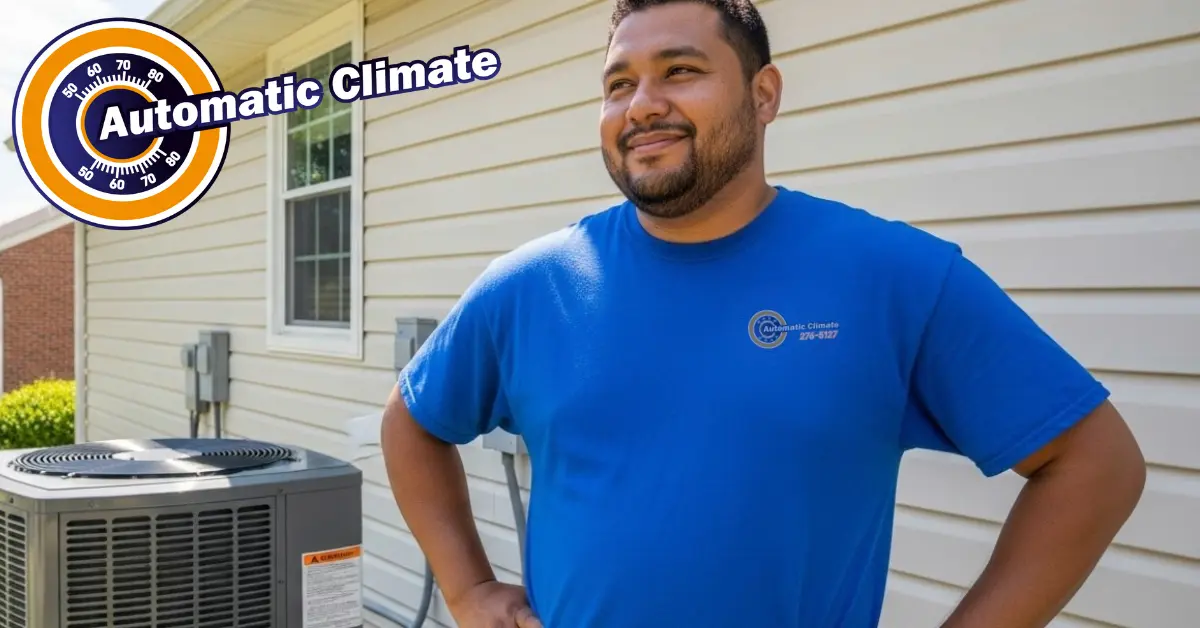
Shut Off Your AC Unit Immediately
When you discover an AC water leak, the first and most critical step is to turn off your AC unit at the thermostat and the circuit breaker. Continuing to run it can exacerbate the water damage and potentially harm the unit’s compressor. Shutting off the power also prevents any electrical hazards, which is a serious risk when water is present.
Contain the Water and Protect Your Property
Next, it’s time to contain the water. Use towels, buckets, or a mop to soak up any standing water. Placing buckets under the dripping area is vital to prevent further damage to your flooring and furniture. If the AC water leak is extensive, a wet/dry vacuum is the most effective tool for quick water removal. The sooner you contain the leak, the lower your risk of permanent damage.
Assess the Damage Carefully
Once you’ve contained the water from the AC water leak, evaluate the extent of the damage. Check your walls, ceiling, and floors for water stains or signs of moisture. Look for peeling wallpaper, bubbling paint, or warped wood. If you notice mold growth, it’s crucial to take action immediately, as mold can pose health risks and worsen the situation. Documenting the damage with photos can also be helpful for insurance claims.
Long-term Solutions for an AC Water Leak
Repairing or Replacing Parts
Long-term solutions are essential to prevent a future AC water leak. If the problem is a blocked drain line, cleaning it with a solution of vinegar and water can often restore function. However, if your condensate pump is damaged or the drain pan is cracked, these parts will need to be replaced. Regular maintenance can help catch these issues early, ensuring your AC remains in good working order.
Preventative Maintenance is Key
Preventative maintenance is your best defense against another AC water leak. Regularly check and replace your air filter—a clean filter helps maintain proper airflow and prevents moisture buildup. Inspect your condensate drain line and clear any debris that may cause blockages. Furthermore, scheduling professional maintenance at least once a year ensures that all components of your AC are functioning correctly and can prevent a costly AC water leak down the road.
When to Call a Professional for an AC Water Leak
While some minor issues can be resolved by a determined DIYer, knowing when to call a professional is crucial. If you’ve attempted to resolve the AC water leak but it persists, or if there’s extensive water damage, it’s time to seek expert help. Professionals have the knowledge and tools to diagnose hidden problems, such as a refrigerant leak, that may not be visible to an untrained eye.
FAQs About an AC Water Leak
What should I do first if my AC is leaking water?
The first step is to turn off your AC unit at the thermostat and circuit breaker to prevent further damage and potential hazards. Then, contain any water with towels or buckets.
Is a minor AC water leak a big deal?
Yes, even a small AC water leak can lead to significant problems like mold growth, water damage to walls and ceilings, and potential electrical issues. It should be addressed immediately.
Can I prevent my AC from leaking in the future?
Yes! Regular maintenance, such as changing air filters monthly and having the drain lines professionally cleaned annually, can significantly reduce the chances of a future AC water leak.
Take-Away
Experiencing an AC water leak can be alarming, but knowing how to handle the situation can ease the stress. By identifying the source of the leak, taking immediate action to contain the water, and implementing long-term solutions, you can protect your home and maintain a comfortable living environment. Remember, preventative maintenance is key to avoiding these issues in the future. Stay informed, and don’t hesitate to seek professional help when necessary to resolve any AC water leak. Your home and peace of mind are worth it.


